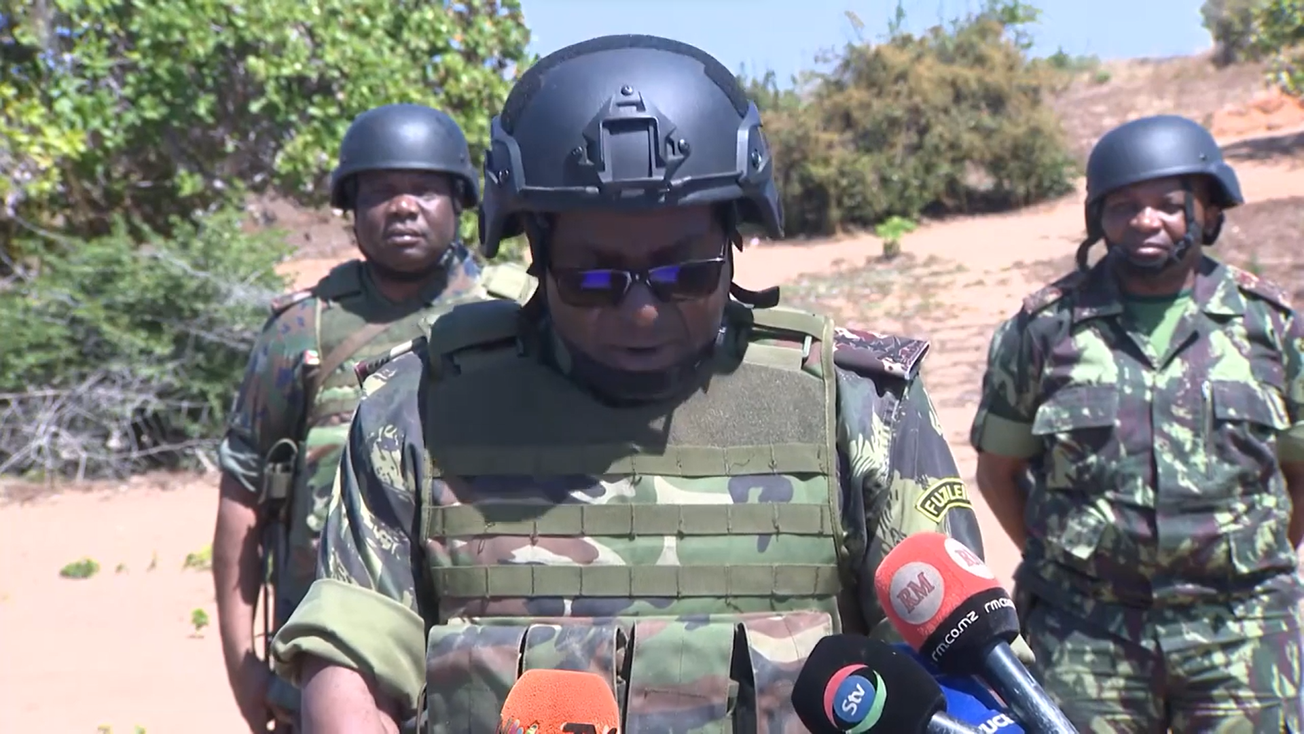It took three weeks, but as expected, the insurgency in Cabo Delgado has reacted brutally to the death of Ibn Omar, the military commander of IS Mozambique. In the late afternoon of Thursday, 14 September, a group of insurgents showed up at Naquitengue village, not far from the Messalo river, and surrounded a number of villagers who were later on grouped on religious grounds: Christians and Muslims, a division that most often, in Cabo Delgado, follows ethnic boundaries.
This article was first published on 22 September 2023 as part of the Cabo Ligado Monthly: August 2023

According to an IS publication, 11 Christians were killed and their houses destroyed. Unconfirmed reports mentioned some of the victims were beheaded. As the FADM’s Chief of General Staff, Mangrasse, commented on 25 August, the death of Ibn Omar is not the end of the insurgency in Cabo Delgado. Later, Defense Minister Cristóvão Chume said he was not surprised by the attack, having expected this kind of reaction.
Nevertheless, hopes are high in Mozambique that the removal of Ibn Omar will mark a watershed in the conflict.
From an operational perspective, however, the decentralized way in which the insurgents operate means that the absence of Ibn Omar will not stop other guerrilla leaders from taking over and commanding attacks in targeted areas.
A recent SAMIM internal document identified a number of commanders for different regions in Cabo Delgado. Last year, during the offensive in southern Cabo Delgado, locals and security experts identified an individual known as ‘Farido,’ also from Mocímboa da Praia, as the commander in charge of that offensive, during a period when Ibn Omar was abroad receiving training and Islamic teaching.
The government also announced the killing of senior insurgency members Abu Kital and Ali Mahando in August, in operations around the Catupa forest base in Macomia. But a new name has also emerged as a leading commander, that goes by the name of ‘Quadrado.’ Both Farido and Quadrado were mentioned as base commanders by researchers who spoke with Cabo Ligado, having interviewed people who had been forced to live in those hideouts.
The killings of Omar, Kital, and Mahando have all come during an offensive known as ‘Golpe Duro,’ or ‘Hard Punch,’ involving Mozambican and SAMIM, mainly South African, troops. The offensive has been focused on the Macomia coastal area between Mucojo and Quiterajo, one of the main ideological heartlands for the insurgency after Mocímboa da Praia.
The Hard Punch code name could have been chosen in response to criticisms in a June SADC report, seen by Cabo Ligado, in which the Mozambican delegation mentioned a lack of offensive actions against the insurgency, as opposed to peacekeeping operations. In practical terms, this has meant all the offensive work remained in the hands of the Rwandan Defence Force, and in the increasing operational capacity being shown by Mozambican special forces.
The cautious way in which Mangrasse announced Omar’s death, is notable — pointing to an ongoing investigation to determine a definitive verdict. But a few days later, President Filipe Nyusi, clearly addressing the doubts surrounding the death of the insurgency commander, told a public audience, Ibn Omar will never be seen alive again.
In reports coming from Pangane, a village in the coastal area of Macomia, the insurgents, in their regular contacts with the local population, also acknowledge the death of Ibn Omar. Large numbers of insurgents continue to show up at the village to fetch supplies and pay generous prices, well above the usual. They also continue to insist on the need for regular religious prayers and total abstinence from alcoholic beverages.
Weeks of military operations along the coast of Macomia have forced the insurgency to move westwards, along the Messalo river and across the N380 road. The movement suggests that Muidumbe district could be the next potential target, along with the area of Mbau, still part of Mocímboa da Praia district, where the Naquitengue attack took place. There is a symbolism there since these were areas occupied for a long time, until the clean-up operation by Rwandan forces in 2021.
However, as emphasized by President Nyusi and Mangrasse, the insurgency is losing operational capacity. The end of Ramadan and the rainy season did not show any renewed fighting capacity, despite the large number of new recruits identified in hideouts in the surroundings of the Catupa forest, and in frequent appearances at the fishing spots along the Macomia coast. The death of Ibn Omar is a real blow for the insurgency. But it is unlikely to be fatal.










